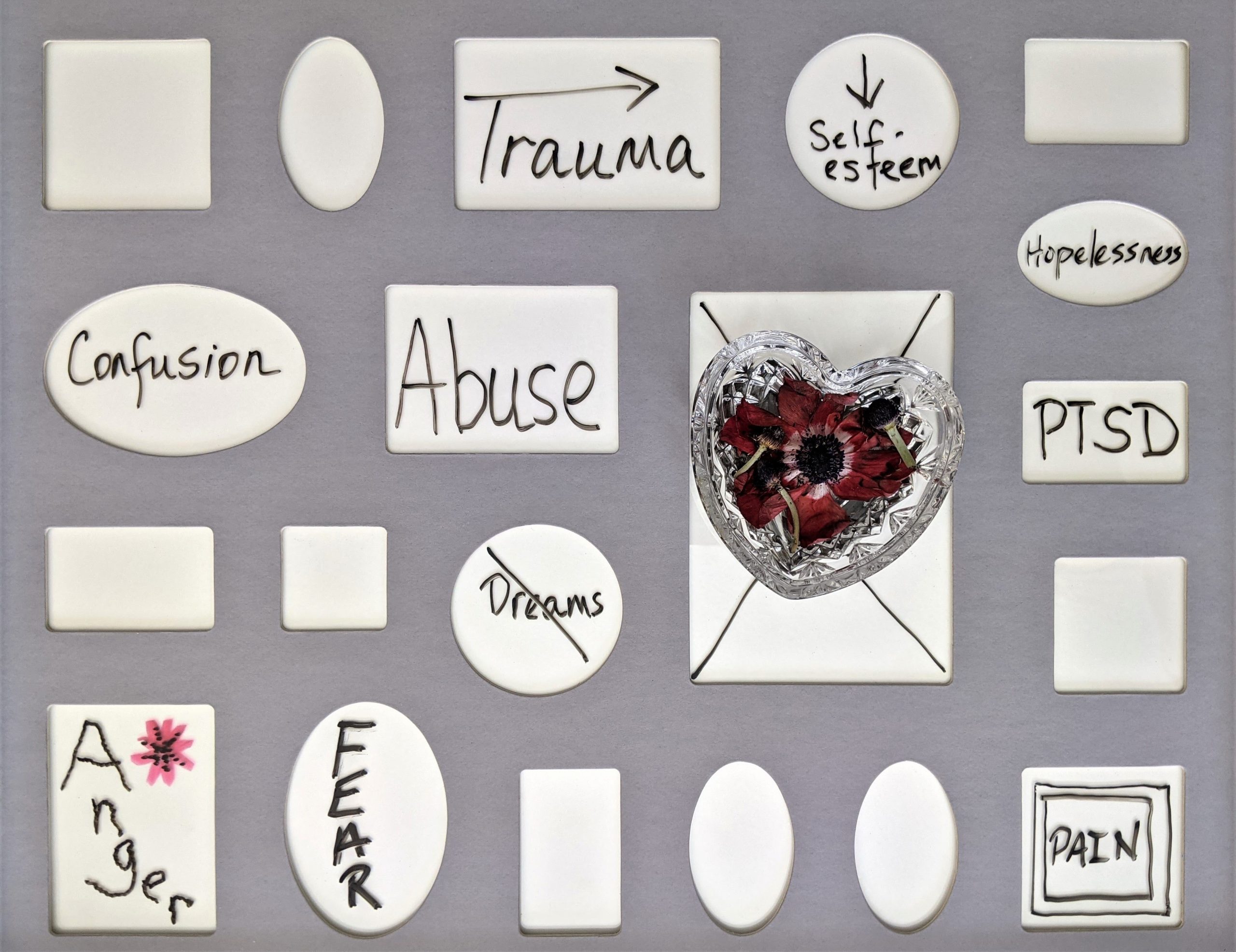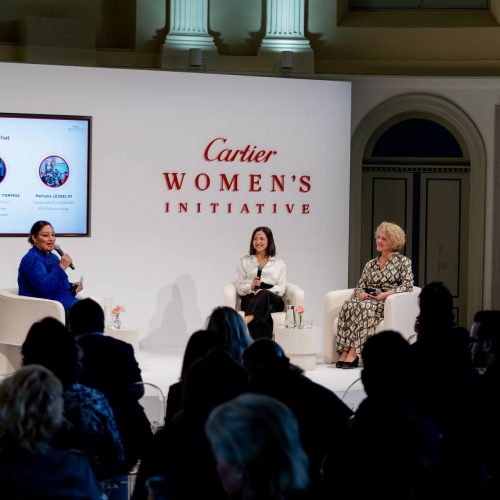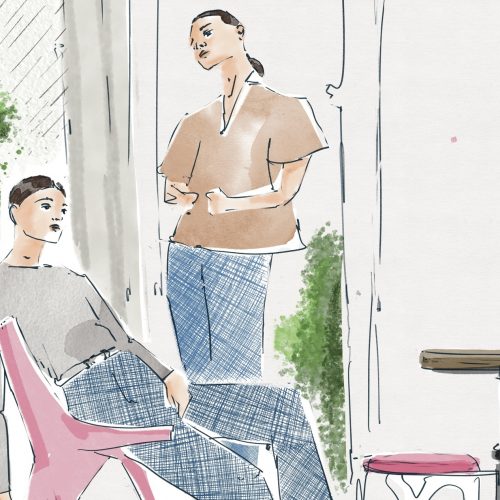Dr. Luana Marques | It’s Okay to Not be Okay
Dr. Luana Marques talks to Luxiders about the pandemic and how the effects could last for years. She urges us to take care of our mental health and to start to treat it seriously and warns us that there is no vaccine that will cure our mental health.
To receive the Luxiders newsletter, sign up here.
Covid-19 creates an unprecedented scenario for us all—with everyone is at risk. Dr. Luana Marques, an Associate Professor of psychiatry at Harvard Medical School and the president of the Anxiety and Depression Association of America, points out that "40% of the US population suffers from clinical depression and anxiety. These are due to fears around the pandemic, the changing financial situation and increasing concerns about systemic racism in the US and around the world. People are more stressed, there's a defense mechanism to respond to the 'my life is in danger' attitude." To date, Dr. Marques has conducted more than 150 trainings on how to cope with anxiety during the pandemic. She is also concerned that the effects may linger in the long term—a worry that the United Nations shares, having stated that the effects of the lockdowns could result in a global mental health crisis that could last for years.

"During the pandemic, we are not only dealing with our own insecurities, but also those of other people around us, and some of us have also lost our loved ones. Many things are happening at the same time," says Dr. Marques
IT'S OKAY TO NOT BE OKAY
The study, “The Impact of Epidemic Outbreak: The Case of SARS and Suicide Among Older Adults in Hong Kong” found that "the adverse mental health effects of disasters impact more people and last much longer than the health effects." Therefore, it is only reasonable to expect a tail of mental health needs that continues to last long after the virus outbreak has subsided. "During the pandemic, we are not only dealing with our own insecurities, but also those of other people around us, and some of us have also lost our loved ones. Many things are happening at the same time," says Dr. Marques. She adds that the difficult thing about mental health is that there is no vaccine to cure it.
That being said, as Dr. Marques points out, it is okay to let people know when we are not okay and to ask for help, especially at this time when we have so much unpredictability to deal with. It is not necessary to go through this journey alone. Further, she reminds us that we need to treat mental illness as a brain health issue, which means that it needs to be addressed and discussed. She points out that more people are now aware that mental health is part of our physical health-our brains, just like our kidneys, are organs, and if they are too stressed, they do not function properly. Everyone is susceptible to suffering from emotional difficulties; the stigma associated with mental health needs to be diminished.

TO REGULATE AND NAVIGATE OUR EMOTIONS
According to her it is significant for us to be able to build resilience; means learning to regulate and navigate our emotions-being able to control how we react emotionally can increase our ability to think more critically. Dr. Marques emphasises that everyone's problems and individual mental health conditions are different and unique, which means that treatment cannot be generalised. However, some common mental health maintenance tactics can be suggested. One of these tactics is to practise mindfulness-a form of meditation. "It's about paying attention in the moment, for example by taking a walk, sipping a cup of tea, having a good conversation with loved ones-if you live alone, over the phone. These small actions can help our wellbeing; it's spending energy to gain energy," explains Dr. Marques. She adds that another essential method to maintain brain wellness is to set boundaries. This can include, for example, limiting news consumption, especially when it comes to Covid-19 topics.
"I want people to really start thinking about their brain as an organ and instead of stigmatising mental health, think about brain health and what are the things you can do? Like 'unplug the app' to cool down the brain, to really allow the brain to not be on all the time."
DIGITAL SELF-CARE APP
During the pandemic, we can see the rise of digital health apps and technologies that offer users a personalised, predictive and preventive approach to improving our overall health. Digital self-care has been shown to enhance and promote self-awareness and focus on mental health and wellbeing. The National Council for Mental Wellbeing reports that demand for behavioural health services increased 52% during the pandemic. Technology has helped revolutionise mental health support, enabling users to seek solutions, consult with professionals, take classes, share experiences and engage in psychologically calming activities.
As an alternative to therapy provided by a licensed professional, mental health apps are much more affordable, which is a huge consideration during times of financial instability. Apps are also portable so they can be accessed conveniently wherever and whenever we want-in particular, this allows us to use them in whatever safe space we prefer. However, digital health apps, including telehealth apps, will never be able to completely replace direct therapy. "Things like body language and gestures don't translate as well through the screen," explains Dr. Marques.
The most important thing, according to Dr. Marques, is that it is extremely helpful to have social support and to have our loved ones around us. At the end of the interview, she reminds us (once again), "I want people to really start thinking about their brain as an organ and instead of stigmatising mental health, think about brain health and what are the things you can do? Like 'unplug the app' to cool down the brain, to really allow the brain to not be on all the time."
This interview is part of a deep article about mental health: "The Silent Pandemic: Covid-19 and Mental Health", published on our Luxiders Magazine Print Issue 7. Buy it HERE.

+ Words: Alvia Zuhadmono, Luxiders Magazine
Sweden-based writer
Connect with her through LinkedIn




